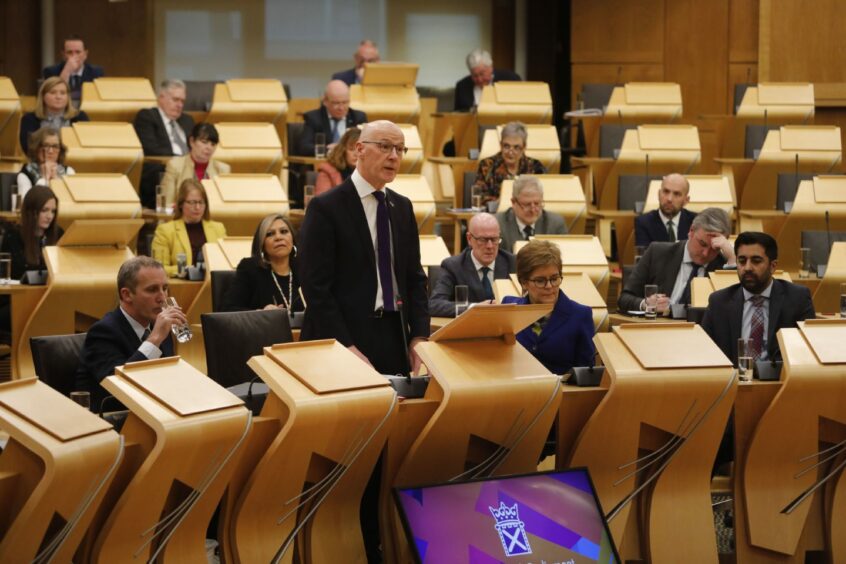There is nothing progressive about giving free paracetamol to millionaires, free university tuition to their children or free bus travel to them when they are over-60 and the Rolls Royce is in the garage.
This should be a simple truth, but it was one of many simple truths seemingly missing from the SNP government’s budget, which we were told had progressive values at its heart.
The SNP’s version of progress apparently includes – but is by no means limited to – cutting spending on public services in real terms and to the largest extent in the UK.
As the respected Institute for Fiscal Studies noted, budget reductions for public services outside the NHS – that is schools, policing, local government, to name but a few – will be “severe”.
SNP supporters will deflect from this by pointing to the oft-touted limits of the devolved financial settlement (agreed by none other than John Swinney himself) and the need to “prioritise” within tight budgets.
In fairness, the latter is clearly the case.
Despite a £1billion plus boon from the UK Government, no one is trying to claim that the SNP government is in a position to be extravagant.
Much of this is due to national and international circumstances outside the SNP’s control, although successive Nationalist finance ministers should also not hide from their failure to grow the economy and tax base.
Nevertheless, the fact that you need to prioritise is not the same as having the wrong priorities, which in this SNP budget – as in many before it – is giveaways for the better off.
Free prescriptions cost Scotland dear
Let us take free prescriptions as an example.
Introduced by the SNP government in 2011, we now spend tens of millions a year giving basic drugs such as paracetamol to many people who could afford to pay for them.
Of course, this is not universally the case.
And it is morally right that free prescriptions are available to those who need them but cannot afford them.
No one wants to live in a society where the sick or elderly are unable to get medicine because of their financial circumstances.
Yet it is also clearly morally wrong that millionaires get the same subsidy as someone on universal credit.
This is a benefit that helps the rich as much – if not more than – the poor, and there is no evidence it improves patient outcomes more than a targeted approach either.
Scotland on Sunday revealed Scotland’s 14 health boards have spent more than £57m on free paracetamol since charging for prescriptions was scrapped by the SNP in 2011.
Before it was abolished in 2011, the £3 prescription charge raised £57m for the health service in Scotland.— Douglas Robinson 🏴 (@DouglasRob0) December 16, 2022
Aside from the moral questions at stake, there is also a serious practical consequence of this universalism: taxpayers’ money gets spent on those who don’t actually need it.
SNP needs to sort out its priorities
Swinney himself clearly recognises this principle, having prudently diverted the SNP’s £20million separatist slush fund towards tackling fuel poverty.
But he should take that principle further.
By making benefits targeted to those who do actually need them, we could cut taxes.
Or, better yet actually spend more on those people or services the SNP government claims are its priority.
To put this in context, were free prescription charges to be scrapped, we could afford to give every nurse and midwife in Scotland a pay rise of around £900.
Sadly for taxpayers, and those who value the contribution of our NHS staff, the SNP had other priorities.
Now, more than ever, it is essential we use the limited resources we have to help those most in need.
It can no longer be morally right, or financially prudent, to draw no differential between the billionaire and the breadline.
This is a simple truth – it is only a shame it is one that is lost on John Swinney and the SNP.














Conversation